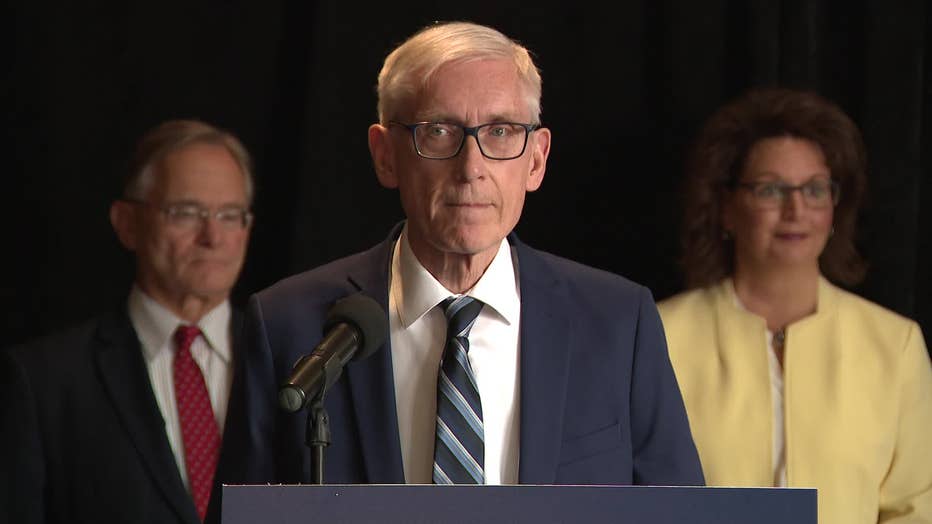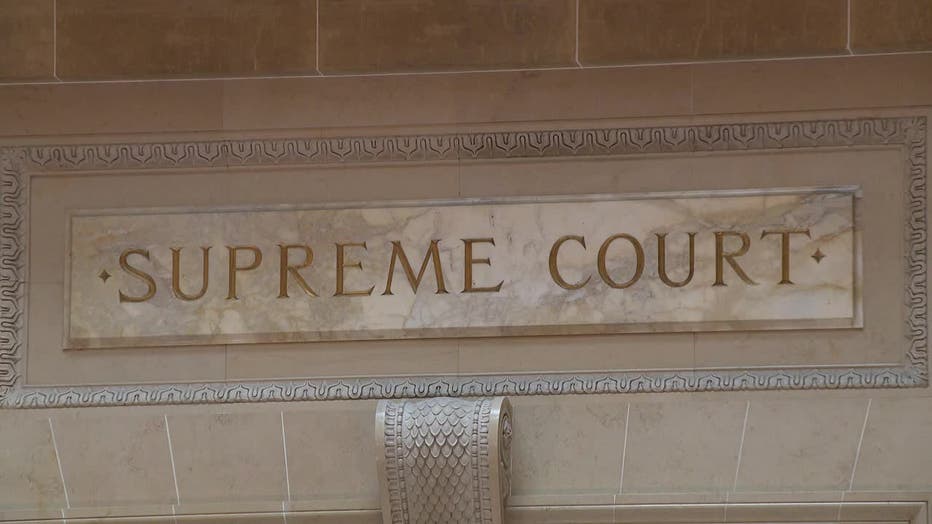Lawsuit asks WI Supreme Court to strike down Ever's 400-year veto

Lawsuit asks court to strike down Ever's veto
Attorneys with Wisconsin's largest business lobbying group asked the state Supreme Court on Monday, April 15, to strike down Democratic Governor Tony Evers' use of a partial veto to lock in a school funding increase for the next 400 years.
MADISON, Wis. - It's the power of the pen. Wisconsin's governor has the most powerful 'partial veto' of any state in the country.
But a new lawsuit aims to change that. This lawsuit stems from the last budget bill.
In a state as politically charged as Wisconsin, the governor's partial veto could be the most bipartisan tradition we have.
"In other parts of the country, in other parts of the world for that matter, the veto is a relatively boring maneuver between the executive and the legislature. In Wisconsin, it's a sport," said Howard Schweber, UW-Madison Professor Emeritus.
SIGN UP TODAY: Get daily headlines, breaking news emails from FOX6 News

Gov. Tony Evers
In 2005, Governor Jim Doyle issued the 'Frankenstein veto' which slashed pages down to 20 words to move more than $400 million to his department of administration.
In 2017, Governor Scott Walker penned the '1,000-year veto' which extended an energy program pause meant for one year, until December 3018.
And in July 2023, Governor Tony Evers extended a per-pupil funding increase for schools by 402 years, just by crossing out a few numbers.
"No governor in Wisconsin has the authority to use a Vanna White or pick-a-letter veto to eliminate certain letters or certain digits or numbers to create new words and new numbers," said Nick Novak from Wisconsin Manufacturers & Commerce.
So on Monday, April 15, on behalf of two taxpayers, Wisconsin Manufacturers and Commerce petitioned the state supreme court, asking the justices to strike Evers' vetoes.
FREE DOWNLOAD: Get breaking news alerts in the FOX6 News app for iOS or Android

Wisconsin Supreme Court
In a statement, spokeswoman for Governor Evers accused Republicans and their allies of stopping at nothing to keep resources from public schools.
But UW-Madison Professor Emeritus Howard Schweber says it's less about schools, and more about principle.
"Despite the fact that it's delightful and amusing, this is no way to run a railroad, let alone a state. And so, I certainly hope the Wisconsin Supreme Court will agree," added Schweber.
Three times Wisconsin voters have limited the governor's partial veto authority by approving constitutional amendments.
The governor cannot cross out letters or sentences to form new ones.
It's not clear if, or when, the court would pick this up.
But Schweber predicts it wouldn't take long.

